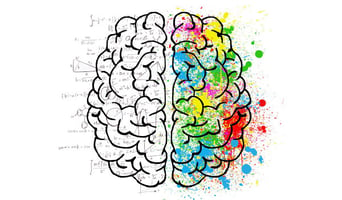Most people can address and resolve simple problems consciously. Complex problems, however, are...
Immediate Disruption Looms as Artificial Intelligence Threatens US Employment
Artificial Intelligence (AI) is rapidly disrupting various industries, posing immediate challenges to employment in the United States. Unlike previous transformative technologies such as cars, computers, the internet, television, and the telephone, the adoption and impact of AI are occurring at an accelerated pace, within months rather than years.
In the past, it took around a generation, approximately 20 years, for a new technology to replace an older one, allowing workers in outdated industries to retire or transition to new sectors. However, AI enables companies to quickly harness its benefits. For example, shortly after the introduction of OpenAI's ChatGPT-3, businesses were able to leverage its power to enhance productivity across a wide range of industries.
The immediate disruption caused by AI is reminiscent of the transformative effects witnessed in the auto industry. In the early 1900s, the emergence of cars disrupted industries like horse breeding, buggy manufacturing, and related accessories. While it took several decades for the auto industry to eliminate certain jobs, it ultimately created even more employment opportunities, significantly contributing to the GDP and stimulating the global economy.
Looking ahead, artificial intelligence is poised to eliminate a significant number of jobs in the near future (within 1-5 years). Although it will create a small number of new jobs, the jobs eliminated by AI will far surpass the jobs created. It is estimated that up to 10% of all jobs in the US could be affected within three years.
Industries that rely on linear thinking, such as law, programming, and customer support, are particularly vulnerable. However, even industries that involve easily modeled work, such as graphic design, photography, and fashion modeling, are also facing disruption. AI has the potential to partially or completely replace these jobs, leading to profound political, social, and economic consequences in the short and long term.
For instance, the legal industry is poised for immediate disruption by AI. AI can efficiently conduct legal research and document review by processing vast amounts of legal documents, court cases, statutes, and regulations in a fraction of the time it would take a human researcher. Natural language processing and machine learning algorithms enable AI to identify relevant case precedents, extract key information, and provide comprehensive legal research. This significantly speeds up the research process and can assist lawyers in building stronger arguments, but it also eliminates the need for many research jobs. AI-powered chatbots and virtual assistants are already being utilized to offer basic legal information, answer frequently asked questions, and guide clients through legal processes. These tools can provide 24/7 support, reduce the need for initial consultations, and improve access to legal services, especially for individuals with limited resources. AI can also automate the review and analysis of contracts, identifying potential risks, anomalies, and non-compliance issues. By leveraging machine learning algorithms, AI tools can extract key terms, compare clauses across multiple contracts, and flag potential discrepancies. This streamlines the contract review process, allowing lawyers to focus on higher-value tasks such as negotiation and strategy.
To put things into perspective, the current population of the United States is estimated to be around 332 million, with approximately 134.5 million individuals employed full-time. Within the workforce, around 100 million workers are engaged in knowledge-based professions that are vulnerable to disruptions caused by artificial intelligence.
In conclusion, the rapid adoption and impact of artificial intelligence are causing immediate disruptions across various industries, with significant implications for employment in the United States. Unlike previous transformative technologies, AI is making its mark at an accelerated pace, revolutionizing industries within months rather than years.
The advent of AI, exemplified by technologies like ChatGPT, resembles the disruptive effects witnessed in the auto industry a century ago. While the auto industry eliminated certain jobs over several decades, it ultimately created even more employment opportunities and made substantial contributions to the economy. However, the disruption caused by AI is expected to be more immediate and potentially have far-reaching consequences.
Ultimately, the pace of AI disruption calls for a proactive approach to adaptability, reskilling, and reimagining the workforce. Striking a balance between the advantages offered by AI and the need for human creativity, judgment, and emotional connection will be key in navigating the evolving employment landscape in the face of AI disruption.



